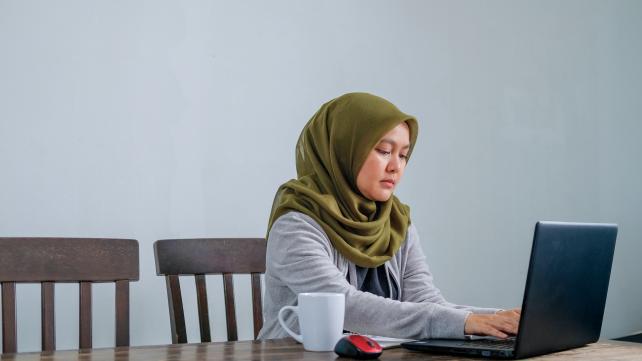
In 2017, the United States census reported 110.6 million unmarried people over the age of 18 - that’s over 45 percent of the American adult population. The number has been steadily on the increase due to a decline in marriage and also an increase in the divorce rate. Similarly, the number of single Muslims is also on the rise.
Muslims who are single fall into several categories - some are students, others are divorcees, widows and widowers, and others are single by choice. Reverts who are new to Islam and often the only Muslims in their families, also fall into this category and deserve special attention. The isolation of the pandemic has been particularly taxing on this group of believers. Isolation can lead to loneliness and depression, and can also negatively affect a person’s faith.
In years past, single Muslims looked forward to Ramadan and often flocked to the mosques to participate in community Iftars and Taraweeh prayers. But with lockdowns closing many mosques across North America for the second year in a row, for some single Muslims, this will not be an option again this year. As a community, we must take assertive steps to reach out to our brothers and sisters who are single at this time.
Prophet Muhammad, peace and blessings be upon him, said, “The believers are like a structure, parts of which support other parts” (Bukhari, Muslim).
When we reach out to single Muslims respectfully and consistently, especially in Ramadan, we can follow this Sunnah. We can also enhance the experiences and rewards for our community.

Here are several ways you can assist single Muslims during Ramadan.
1. Invite them to share Iftar
Reach out to single Muslims by inviting them to break fast with you. With COVID-19 still raging in some areas, this will require some planning. You can invite them to dine outdoors, physically distanced, if you both feel comfortable with that. You can meet outdoors at a restaurant as well. Be careful to select an establishment that is moderately priced in case the sister or brother would like to share the cost. Before parting ways, schedule a date for the next outing. Even ask if they want to suggest the next venue. If COVID-19 restrictions make meeting in person difficult, you could also flex by sending them food and eating together on a video chat. Be creative and remember the goal is not just eating food but strengthening the bond between you.
2. Offer to become a Ramadan buddy
A buddy system may be of great help to a single Muslim. Create a mechanism to reach out to a person. In addition to sharing a meal, you can offer to do the following for or with them:
- Call or text them to wake up for Suhoor daily.
- Call or text them to remind them it’s time to break fast daily. (In addition to just giving notice, be sure to inquire about how the fast went for them and share your experience as well.).
- Meet up with them at the Mosque for Salat or Taraweeh prayer.
- Check in with them any time to let them know you care.
3. Invite them to assist with a service
Ramadan is when Muslims are generous with their money and their time. Local mosques and Islamic organizations often make a special effort to arrange service projects during the month. These might include cooking and serving community Iftars, gathering donations for a food pantry, visiting the sick, cleaning up the neighborhood, coordinating toy and gift drives for Eid, and more. A single Muslim may be shy to join an effort by themselves, but may welcome the idea of working on one with you.
4. Offer to give them a ride
Fasting alone, then breaking fast alone can not only be isolating, but it can also have negative spiritual consequences. Attending Salat in congregation and Taraweeh prayers can offer a powerful antidote to the isolation. But that is only if you can get there easily. If a single Muslim you know cannot attend regularly due to lack of transportation, become their Ramadan ride. Remember that folks who regularly use public buses or subways may not be able to rely on them late at night, when these congregational prayers are performed. This will especially be the case on the last 10 nights, when there is likely to be increased activity in the search for Laylatul Qadr, The Night of Power. Make sure to remain masked and if possible, roll down the windows, as you travel together as a COVID-19 precaution.
Single Muslims should not feel isolated from our Islamic communities, particularly during Ramadan. Rather than suggest that it is their struggle alone, offer to do something yourself this year to spread the love and strengthen their connection to our community. The rewards and blessings will abound, insha Allah.




Add new comment